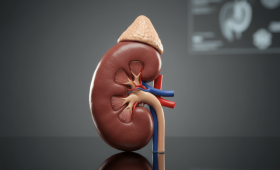Which countries legally allow foreign patients to be placed on organ transplant waiting lists?
Most countries’ organ donation and transplantation systems are designed primarily to meet the needs of their own citizens and legal residents. This approach focuses on creating a national organ pool and ensuring fair distribution. However, under specific conditions, some countries may allow foreign patients to participate in their transplant programs. These countries are typically those with advanced healthcare infrastructure.
For example, in the United States, a foreigner can generally be placed on a waiting list only after meeting certain residency requirements or by bringing a living donor. Countries like Canada and the United Kingdom apply similar, strict legal and ethical rules. In some Latin American and Asian countries, there are programs, especially through private hospitals, that accept foreign patients for living-donor transplants. These countries’ policies are dynamic, so it is essential to check the websites of each country’s official organ transplant organizations for the most up-to-date information.
What conditions must a foreign patient meet to be placed on an organ transplant list?
The conditions for a foreign patient to be accepted onto an organ transplant list vary significantly depending on the legal regulations and healthcare system of the country where the operation will be performed. However, the main conditions generally sought are as follows: Medical suitability means the patient must have the physical and mental health to withstand the transplant operation. This is determined through a series of detailed examinations, including comprehensive blood tests, imaging tests, and psychological evaluations. Financial security is one of the most critical conditions.
The patient is required to prove that they have sufficient financial resources to cover the costs of the pre-transplant process, the surgery, the hospital stay, the expensive post-transplant medications (immunosuppressants), and long-term follow-up care. The legal and ethical approval process is of vital importance, especially if a living-donor transplant is to be performed. In this case, an independent ethics committee conducts a detailed review to ensure that the donor’s relationship with the patient and the donation itself are completely voluntary, without any expectation of reciprocation. Finally, the patient is expected to fully comply with all of the relevant country’s organ transplant laws and regulations.
Why do organ transplant waiting times differ from country to country?
There are several complex factors behind the variation in organ transplant waiting times between countries. The most important factor is the country’s organ donation rates. A high level of donation awareness in society and the existence of legal systems that facilitate organ donation (e.g., the opt-out system) increase the number of potential organs, thereby shortening waiting times. A second factor is the size and structure of the patient pool.
The number of patients on the waiting list and the medical urgency of each patient directly affect how quickly an organ can be found. For example, in one country, there may be a large number of patients waiting for a kidney transplant, while in another, this number may be lower. Third, logistics and infrastructure differences also play a role. Elements such as the efficiency of organ transplant coordination, the adequacy of hospital infrastructure, and the expertise and number of surgical teams determine the time from when an organ is donated to when it is delivered to the recipient, and thus affect the overall waiting time.
Does the waiting list status for different organs like kidneys, livers, hearts, and lungs vary from country to country?
Yes, the waiting list status varies significantly by organ, and this situation also differs between countries. For example, waiting lists for kidney transplants have a different dynamic compared to other organs due to the widespread possibility of living-donor transplants and the availability of alternative treatments like dialysis. A living-donor transplant can almost eliminate the waiting time.
In contrast, for heart and lung transplants, living-donor transplants are nearly impossible, so the waiting lists for these organs are dependent solely on deceased-donor donations. This situation leads to much longer waiting times and a more critical sense of urgency. In one country, the waiting time for a kidney transplant may be short, while for a heart or lung transplant, it could take months or even years. Therefore, organ-specific waiting list statistics are critically important for evaluating the effectiveness of a country’s organ transplant system.
What are the effects of organ donation rates on a country’s waiting list?
Organ donation rates are the most decisive factor influencing the status of a country’s organ transplant waiting list. These rates directly affect the number of deceased donors in a country and, as a result, determine the availability of organs for patients waiting for a transplant. Countries with high donation rates tend to have shorter waiting lists because the number of donated organs is closer to the number of people in need.
This contributes to saving more lives, reducing the need for treatments that diminish quality of life like dialysis, and generally easing the burden on the healthcare system. Conversely, in countries with low donation rates, waiting lists grow longer, patients are forced to wait for many years, and the number of people who die during this process increases. This situation can turn organ transplantation into a luxury and lead to an unfair system.

Are waiting lists shorter in countries that implement an “opt-out” system?
Generally, yes, it has been observed that organ transplant waiting lists are shorter in countries that implement an “opt-out” system. This system stipulates that individuals are automatically considered organ donors unless they explicitly state otherwise. The basis of this approach is that while people may have a positive view of donation, they may hesitate or forget to take steps like getting a donor card or filling out a form. The “opt-out” system removes this “inaction” barrier, significantly expanding the potential donor pool.
Countries like Spain and Belgium, which have adopted this system, have some of the highest donation rates worldwide. This situation leads to an increase in the number of donors, making more organs available for patients on the waiting list and shortening waiting times. This model also reduces the burden on families to make a decision about donation at the time of death.
Is “organ transplant tourism” a legal practice, and what ethical issues does it bring?
“Organ transplant tourism” is absolutely not a legal practice; on the contrary, it is an illegal and highly unethical activity condemned by the World Health Organization (WHO) and other international organizations. This tourism generally involves wealthy patients illegally buying organs from donors in impoverished regions. This situation fuels organ trafficking and human exploitation. The ethical issues begin with injustice; organ transplant tourism facilitates access to organs for the wealthy, bypassing local waiting lists, and leads to an unequal distribution of organs. Secondly, donors in this process are often deceived or coerced, taking advantage of their poverty, which leads to human rights violations. Lastly, transplant tourism carries significant health risks; illegal operations are often performed in unhygienic conditions without medical supervision, which can lead to serious infections, complications, and even death for both the donor and the recipient.
Can a foreign patient be placed on a list for a deceased-donor transplant, or only for a living-donor transplant?
The possibility of a foreign patient being placed on a country’s transplant list depends heavily on that country’s transplant policies. Most countries reserve deceased-donor lists for their own citizens or legal residents. The fundamental reason for this is that the deceased-donor system is supported by the country’s own population, and the principle is to ensure a fair distribution of organs. Therefore, it is very rare for a foreign patient to be accepted onto a deceased-donor list and is generally not possible outside of international agreements or very special circumstances.
On the other hand, a living-donor transplant procedure is a more common option. In this case, the transplant is performed using a living donor found by the patient themselves. This process involves a detailed ethical review to ensure there are no financial transactions or coercion between the donor and recipient. This is the most common method by which foreign patients are accepted, as it does not affect the national organ pool.
Which countries require a family relationship for living-donor organ transplants? Are there exceptions to this rule?
Many countries require a legal and ethical connection, usually a family relationship, between the donor and recipient in living-donor transplants to prevent the organ from becoming a subject of illegal trade. Turkey is one of these countries and has mandated ethical board approval for donations from non-relatives beyond the third degree. The primary purpose of this rule is to prevent organ trafficking and ensure that the donor is donating voluntarily.
However, there are exceptions to this rule. In most countries, ethical boards may grant approval for transplants from non-relatives, such as spouses, close friends, or individuals with an emotional bond, after a thorough review to confirm the donor’s close relationship with the patient and that the donation is made without any expectation of material gain. This process includes interviews with the donor and recipient, psychological evaluations, and legal documents confirming the donation is entirely voluntary. This process is crucial to prevent the exploitation of donors.
How much do organ transplant operation costs vary from country to country?
The costs of organ transplant operations vary enormously depending on the structure of the country’s healthcare system, the level of technology used, the quality of the hospital, and the complexity of the operation. In high-income countries with advanced medical infrastructure (e.g., the U.S., Germany), transplant costs can be much higher compared to other countries.
These costs include not only the surgical operation itself but also all pre-operative medical evaluations, the prolonged hospital stay, the post-operative intensive care process, the cost of continuous immunosuppressant medications, and regular follow-up check-ups. In developing countries, the costs may be lower, but this can sometimes also mean differences in infrastructure and quality of care. It is vitally important for patients to contact the centers where they plan to have the transplant performed to request a detailed cost breakdown.

What should patients who want to go abroad for an organ transplant do regarding insurance and costs?
Patients planning to go abroad for an organ transplant must be very careful about managing insurance and costs. First, they must check whether their health insurance policy covers international organ transplant operations. Most national insurance systems do not cover such operations. If it does, they need to find out which procedures and costs are covered and which documents are required. If there is no insurance coverage, all costs will have to be covered by the patient’s own budget.
In this case, it is important for patients to contact the international patient units of potential transplant centers to request a detailed cost plan that includes the transplant process, surgery, hospital stay, medication, and follow-up checks. It is also critically important to include additional expenses like long-term accommodation, travel, and emergency funds for possible complications in their budget.
Which countries show the best performance in terms of organ transplant success rates?
Organ transplant success rates are generally measured by statistics from countries with advanced healthcare systems and extensive experience in organ transplantation. The U.S., Spain, Germany, and some Scandinavian countries are typically among the top performers in terms of organ transplant success rates. This success is not limited to the operation itself; it is also determined by factors such as short- and long-term survival rates after the operation, a low incidence of organ rejection, and an improvement in the patients’ overall quality of life.
The success in these countries is achieved by a combination of many factors, including high organ donation rates, the expertise of the transplant team, the use of modern surgical techniques, comprehensive post-transplant care programs, and regular patient follow-ups. Success rates can also vary depending on the type of organ transplanted (e.g., kidney transplant success rates are higher than heart transplants) and the patient’s overall health condition.
What should foreign patients consider when choosing organ transplant centers?
Choosing the right organ transplant center for a foreign patient is vital for a successful outcome and a smooth process. First, it is important to check whether the center has international accreditations. Accreditations like JCI (Joint Commission International) are an indicator that the center provides services that meet international standards. Second, the experience and expertise of the transplant team are very important. The number of past transplant operations and success rates of the surgeons, nephrologists, and other healthcare staff should be researched.
Third, the center’s success and survival rates for the specific type of organ transplant should be examined. Fourth, the existence of services specifically designed for foreign patients should be considered. Having a patient coordinator who provides language support and assists with visa procedures and accommodation makes the process much easier. Finally, detailed information should be obtained about the center’s post-transplant care and follow-up protocols.
How is the post-transplant care and follow-up process managed for patients from abroad?
Post-transplant care is as critical a phase as the operation itself and requires special planning for patients coming from abroad. It is mandatory for the patient to stay in the country where the transplant was performed for the first few weeks, or even months, after the operation and to be closely monitored by the team that performed the surgery. During this period, the patient starts taking immunosuppressant medications to prevent organ rejection, and their dosages are adjusted with regular blood tests. When the patient’s condition stabilizes and is approved by the doctors, they can return to their home country.
At this stage, a constant communication and cooperation protocol should be established between the hospital where the operation was performed and a local healthcare center or doctor in the patient’s home country. This is vital for the procurement of medication, regular blood tests, and the management of possible complications. The post-transplant follow-up performed in a foreign country should continue without interruption by being integrated into the patient’s home country’s healthcare system.
What documents are generally required when applying for an organ transplant abroad?
When applying to an organ transplant center abroad, it is vital to provide a comprehensive and complete set of documents. The documents generally required are as follows: First, medical reports and epicrises prepared by doctors in the patient’s home country are requested, detailing the patient’s entire medical history, test results, current health status, and the need for a transplant. Second, legal identification documents such as a passport and visa are required for international travel.
Third, financial evidence is needed to show that the patient can cover the transplant costs; this could be bank statements, sponsorship letters, or a specific financial guarantee. If a living-donor transplant is to be performed, the donor’s medical suitability reports and legal status documents, as well as legal approvals proving that the donation is voluntary, must also be submitted.
Are organ transplant waiting lists and foreign treatment options for pediatric patients different from adults?
Yes, the organ transplant processes for pediatric patients differ significantly from those for adults. One of the biggest challenges for pediatric patients is finding an organ of a suitable size and compatibility. The number of pediatric donors is much lower than the number of adult donors, which can lead to longer waiting times. Some countries may implement special waiting list rankings or age-based prioritization systems for pediatric patients. Foreign treatment options can place additional financial, emotional, and logistical burdens on the families of pediatric patients, as the process can be longer and more complex. Therefore, families considering an international organ transplant are strongly advised to research centers with specialized pediatric transplant programs and specialists in this field.
What are the international organ transplant organizations and legal regulations?
To define the ethical and legal framework of organ transplantation and prevent organ trafficking, many international organizations and regulations exist. The World Health Organization (WHO) establishes ethical guidelines and legal principles for organ transplantation at an international level. These principles emphasize that organ donation should be voluntary and non-reciprocal.
Professional organizations such as The Transplantation Society encourage transplant surgeons and other healthcare professionals to adhere to ethical standards. The Declaration of Istanbul is a global call to prevent organ trafficking and transplant tourism and has been adopted by many countries. These organizations and legal regulations aim to ensure patient safety, promote the fair distribution of organ donations, and prevent human exploitation.
What legal and ethical risks might patients face when going abroad for an organ transplant?
Going abroad for an organ transplant can carry a number of serious legal and ethical risks for patients and their families. Legal risks include the risk of not fully complying with the laws of the country where the operation is performed or getting involved in a procedure that is considered illegal in their home country. For example, getting involved in a transplant procedure that is part of organ trafficking could lead to legal sanctions against the patient in their home country.
Ethical risks are even more complex. A non-transparent process can cause a patient to unknowingly become part of an illegal organ trafficking network. This can reveal the reality that the donor was forced or coerced into selling their organ due to poverty. In such a situation, the recipient becomes part of human exploitation. To avoid these risks, it is extremely important for patients to choose only transplant centers that are internationally accredited and adhere to legal and ethical rules.
What are the conditions for foreign patients to be placed on an organ transplant list in Turkey?
In Turkey, the organ transplant process for foreign patients is managed by the National Organ and Tissue Transplantation Coordination System, which is affiliated with the T.C. Ministry of Health. This system prioritizes the distribution of organs to Turkish citizens and foreigners with legal residency in the country. Therefore, the acceptance of foreigners onto deceased-donor lists is very limited, and the priority is given to Turkish citizens.
However, foreign patients can apply to hospitals in Turkey for a living-donor organ transplant. In this case, a family relationship between the donor and the patient is required, or the approval of an ethics board if there is no family relationship. This process is subject to extremely strict rules to prevent organ trafficking. The applicant is expected to meet all financial and legal requirements in addition to medical suitability.
Why is it important for a patient to contact authorities in their home country before deciding to go abroad for an organ transplant?
Before deciding to go abroad for an organ transplant, it is a vital step for the patient to contact authorities in their home country (for example, the organ transplant coordination unit affiliated with the Ministry of Health) for both patient safety and legal procedures. This communication ensures that the patient receives accurate information about the laws and regulations related to organ transplantation in their home country. It also minimizes the risk of the patient getting involved in a procedure that could be considered illegal in their own country.
The authorities in their home country can also assist the patient with issues such as the post-transplant follow-up process, the procurement of necessary medications upon their return, and the transfer of medical records. This precaution helps to reduce the risk of falling into the trap of illegal organ trafficking while ensuring that the transplant operation is carried out in a transparent manner, both ethically and legally. This also makes the post-transplant process much smoother for the patient.


